The following is the full text of the Al-Wefaq’s political stance regarding 2018 elections:
Al-Wefaq National Islamic Society sees that the vision and determination of majority of Bahrainis seek to achieve political partnership through national consensus that attain the aspirations and hopes of all Bahraini components in reaching sustainable political, economic and social stability, end political and security tension in Bahrain in a way that contributes to getting the country out of its constitutional and political crisis, in order to build a democratic state that gathers all of its people and components according to the principle of equal citizenship and inclusive identity.
The national opposition forces, civil society institutions and the peaceful popular movement have worked since 2011, through voting on the National Action Charter and through effective political participation in both of the parliamentary trials (2006 and 2010), and through various political communication channels, until the eruption of the major popular movement that started on February 14, 2011 and is still ongoing, aiming at improving the political situation in the Kingdom, in order to build a democratic state that enjoys freedom of political work and effective participation in political life, establishes free civil society institutions, respects and protects the principles of rights and public freedoms provided for in the International Bill of Human Rights and opens new horizons of freedom of expression for people and groups. Through all of this, the people of Bahrain sought political stability based on peaceful circulation of power through free and fair elections that reflect the people’s will.
Experiences have shown since 2011 that the ruling authorities in Bahrain reject the principle of serious dialogue and that the formal dialogues that were unilaterally organized and managed by the ruling authorities at that time did not gain internal and external trust. Those dialogues were aimed at reinforcing tyranny and unilateral approach. They didn’t contribute to achieving any part of the national reconciliation; instead, they increased policies of marginalization, discrimination, naturalization, persecution and theft of public money.
The security choices the regime has resorted to since 2011 and still adheres to, which constitute its only choice in dealing with the people of Bahrain, have proven their failure in abolishing the aspirations of Bahrainis towards democracy, freedom, dignity and social justice. In fact, they have contributed to deepening the political and human rights crisis and aggravated the economic and social difficulties Bahrain faces.
The national opposition forces have already shown in several stages – through a group of documents and visions they proposed or announced such as the Manama Document and Bahrain Declaration (recently launched by Al-Wefaq), in addition to many political initiatives to find out a solution and settle the dispute – that the solution in Bahrain comes through: governance of the people, where the people are the source of all authorities through a consensual social contract, with the separation of powers, restriction of authority (since authority creates responsibility), building a modern democratic state that is based on the rule of law, political participation of citizens with their pure will and determination in making political decision, the necessity of the existence of political pluralism that ensures that the authorities and institutions of the state express the will of the people, applying good governance by ensuring transparency, accountability, and the right to access information easily, freedom of the press, the prevention of corruption in all its forms, importance of respecting human rights, guaranteeing public and religious freedoms, following the best international practices in the conduct of free and fair elections to add the institutional nature to the legitimate authority in support of democracy, the importance of reaching a trustworthy and just judiciary through providing necessary guarantees for justice and equality, total independence of judicial authority with all its components, the State’s commitment to bearing social responsibility, with our full belief in following the peaceful methods, dialogue and negotiation as a principle to manage disputes and fight violence, terrorism and extremism.
We also believe that Bahrain needs sustainable development, preservation of natural resources, equal distribution of the country's wealth and investing in it well for future generations, achievement of security that is based on the doctrine of protecting the homeland and citizen, protection of rights and freedoms, preservation of the social fabric and historical identity of Bahrain in a way that preserves civil peace, coexistence, tolerance and sustainable stability to promote development.
The desire to attain sustainable political stability in Bahrain, in a way that meets the aspirations of Bahrainis for achieving genuine democracy and social justice, which puts an end to the crisis witnessed in the country, prompts us to emphasize our political stance based on many constitutional, legal, political, human rights, economic and social reasons, including:
1. Absence of contractual Constitution in Bahrain; 2. The electoral system is unjust, does not achieve equality between citizens and does not provide any justice. It also does not apply the universal principle in the elections: "a vote for every citizen", and there is discrimination in the districts. There is no benefit from taking part in the elections under the current electoral system, which subjects the remaining political societies to the power of the State, away from freedom of opinion and expression; 3. An electoral process organized by the authorities in a unilateral way. The authorities reject allowing any independent party to manage or supervise the elections, in accordance with international requirements; 4. A legislative authority that lacks powers and is subjected to the influence of the executive authority, and regime’s assignment of a number of members equal to the number of those elected, and they take part in legislation; 5. Laws and some legislation-that prohibit and undermine- fundamental rights and freedoms such as: the anti-terrorism law, political associations law, military judiciary law, nationality law, penal code, retirement law, law on exercising political rights, decree law no. (56), etc., with a wide package of files including; 6. Activation of military courts to try civilians in contravention of international laws 7. The judicial authority and its broad discretionary powers, its partiality to the executive authority, its politicization and lack of independence 8. Absence of popular will in forming the government 9. Invalid calls for dialogue due to lack of political will for a serious negotiation; 10. Authorities’ undermining of national sovereignty on the regional and international levels 11. Brutality of security state 12. Silencing the political opposition and closing democratic space of organized party work 13. Gradual dismantling of the national identity through political naturalization of tens of thousands of military personnel and regime loyalists, which caused significant demographic change; Bahrainis will become a minority in the country; 14. Aggravated discrimination, as the state was built on basis of tribal and sectarian discrimination 15. Deepening of trust crisis between the authority and people due to unilateralization in ruling 16. The political problem- still unresolved since February 2011- upon which Al-Wefaq Parliamentary bloc withdrew after the legitimate national demands of the majority of Bahrainis were absented, especially that the aggravation of political crisis gave birth to crises on different aspects; 17. Absence of free media and monopoly of television, radio and paper media by the regime, and the ongoing media incitement campaigns and hate speeches 18. Continued financial and administrative corruption and imposition of legislations that protect corrupt people; 19. Lack of transparency in making fateful state decisions; 20. Accumulation of public debt in an alarming way to citizens and future generations due to absenting the popular will in making sound economic decisions; 21. Drowning the country in continuous debts due to unilateral decisions taken by the executive authority; 22. Continuing with the tax policy and its negative effects; 23. Lack of seriousness in combating corruption and wasting public money; 24. Lack of serious, genuine and faithful implementation of the recommendations of the Independent Commission of Inquiry (BICI), and failing to comply with the recommendations of the Universal Periodic Review of the Bahrain Human Rights file in Geneva (2012) and (2017), as serious human rights violations continue to occur, the human rights crisis deepens, and the policy of impunity spreads; 25. Evading international censorship mechanisms, not allowing UN rapporteurs, including the UN Special Rapporteur on torture, to visit Bahrain and monitor the human rights conditions and adopting a hostile attitude towards the United Nations mechanisms by the authorities.
Political position
After an 18-year-old experience, which have left numerous major setbacks at all levels, and with the insistence of the authorities to pursue the same methods of perpetuating the deadlock, not achieving any real reforms, closing democratic space and shutting the doors of dialogue, which have brought the country into a cycle of crises that have exhausted it; we stress, from our national responsibility, that the people of Bahrain have no choice but to boycott the parliamentary and municipal elections.
Accordingly, we emphasize the following:
1. We are committed to the need for dialogue and negotiation to overcome the crises besieging the country.
2. We emphasize the need to stop the depletion and theft of the country's wealth.
3. We strongly affirm our steadfast position regarding national and Islamic unity and the need to increase national cohesion and to ruin the attempts of those who follow certain agendas.
4. We confirm our adherence to the peaceful approach in claiming just and legitimate rights and we affirm the continuation of the civilized popular movement demanding democratic transformation.
5. We believe that this election process is very offensive to Bahrain and Bahrainis and reflects a state of disregard and disrespect of them. The people of Bahrain are superior to such an election process.
6. We emphasize that our choice to boycott the elections stems from a very deep study and vision based on national interest, national security and the preservation of the country’s wealth and the citizen’s status.
7. We affirm that our boycott of this election aims at preserving the dignity and position of our people and emphasizing that it is important for the people to obtain their rights as they deserve.
8. This experience of meager nominal elections is added by Bahrain to the record of the world worst experiences in the election of the legislative authority.
9. We call on all our people from different classes and affiliations to take an inclusive national stance to boycott and refuse to participate in the elections, so that we will be able to improve and develop the experience in a fair manner that preserves the rights and dignity of the people. The participation means submitting to further marginalization, corruption and destruction, which are increasing and accumulating.
10. After studying and extrapolating all the sites and constituencies of Bahrain, we expect the participation rate to be between 27% and 32% only and 3% in some constituencies. The percentages may reach this level by pushing and forcing the military personnel and obliging a number of employees to vote, and also through using electoral money and intimidation.
11. We call on the international community and UN institutions to take their natural role in supporting the people of Bahrain in overcoming this troubled situation and in building national consensus.
Al-Wefaq National Islamic Society / October 9, 2018

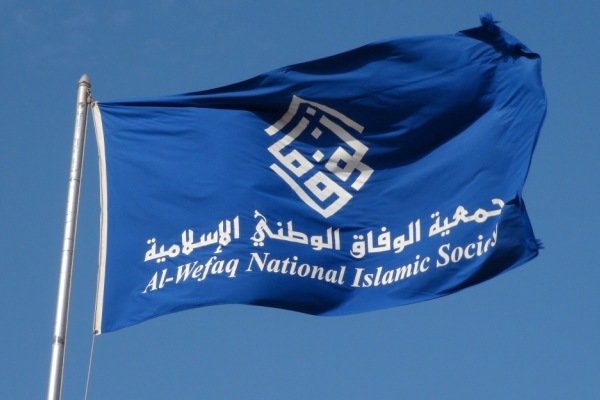

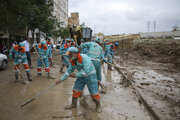

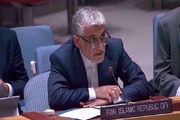
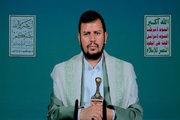
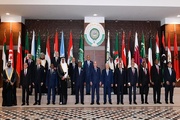
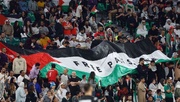
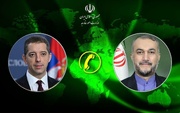


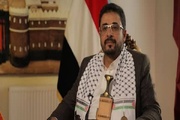
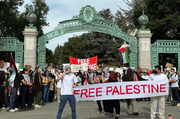
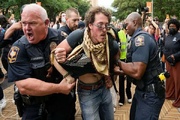

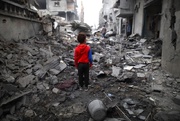
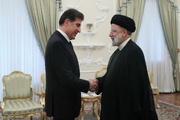
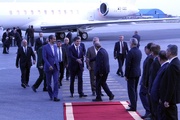
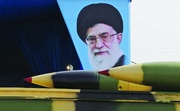


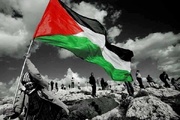
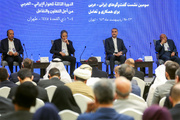
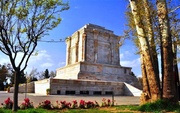
Your Comment